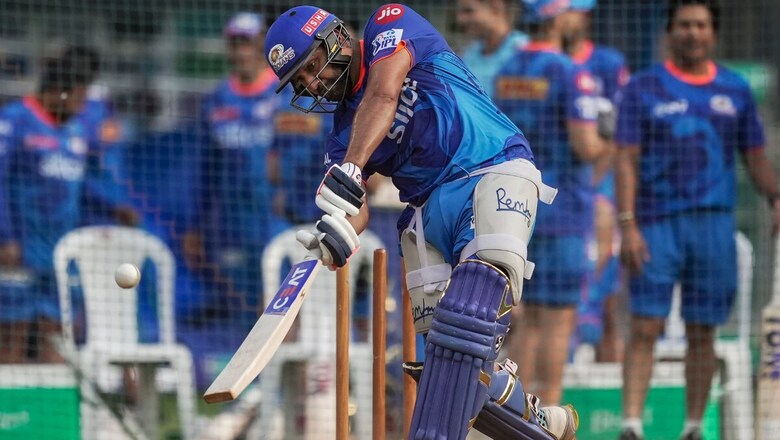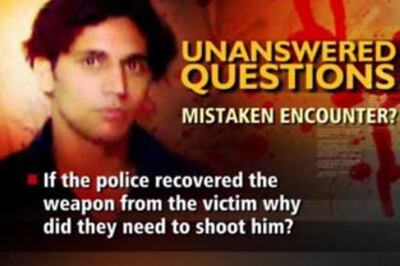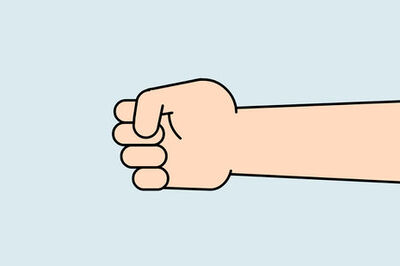
views
There are Indian cities. And then, there is Mumbai, often described as a melting pot of cultures. Every other Mumbaikar is in a rush. A seat inside a local is a dream seldom fulfilled. Monsoons disrupt the rhythm of life every year. Yet, few want to leave Mumbai once they are in – because of the atmosphere, the people on the streets, the irresistible charm distinctly the city’s own.
Home to Bollywood, the City of Dreams also has a rich sporting culture. It has groomed many famous sportspersons. Moreover, the average Mumbaikar’s passion for sports is evident in casual conversations, which reveal the person’s excellent understanding of the form of sport they love.
Most conversations centre around cricket, with discussions on an international match in the news drifting towards recollections of matches played in Azad Maidan and Shivaji Park. Slowly, newcomers in the city get accustomed to meeting local sports lovers who know their racket sports, kabaddi, football, swimming and much more.
Mumbai’s legendary sporting culture makes it the ideal venue for the prestigious 141st International Olympic Committee (IOC) Session, which will take place from October 15 to 17 at the state-of-the-art Jio World Convention Centre, the largest convention centre in the country.
The upcoming event is the second IOC Session in India, New Delhi having hosted the first in 1983. A significant reminder of India’s growing importance in international sport, it will also make a statement of the nation’s preparedness for hosting a global multi-sport event such as the Olympics.
As is the case with everywhere else in India, cricket is the biggest passion in Mumbai. At the same time, the city hosts the Mumbai Marathon, an annual international marathon classified as an IAAF Gold Label Road Race. After a two-year break because of Covid-19 restrictions, the marathon took place in January this year. More than 50,000 amateur and professional runners took part, resulting in a great experience for those who ran with several thousand others and the rest who watched those moments unfold.
Female sportspersons from Mumbai have made the city proud of its sporting culture for many decades on the international stage. Leela Row Dayal became the first Indian female player to win a match at the Wimbledon tennis championships, which she did in 1934. Barbara Webster won Bronze medals in the shot put and javelin throw events at the 1951 Asian Games, New Delhi.
Swimmer Dolly Nazir took part in the 100m and 200m freestyle at the 1952 Summer Olympics, Helsinki. Mary D’Souza, who won Asian Games medals in 1951 (New Delhi) in 4x100m relay and 200m and1954 (Manila) in 4x100m relay, also competed in the 100m and 200m at the 1952 Summer Olympics. These women form a crucial part of a chain of events that has led to the growth of sporting activities in the city.
Mumbai, without a shadow of a doubt, is best known for its contribution to Indian cricket. The Mumbai Cricket Association-owned Wankhede Stadium is the home ground of Mumbai Indians, the five-time winner of the Indian Premier League (IPL). The sport’s association with the city’s famous maidans – Azad Maidan, Oval Maidan and Cross Maidan – is well-known.
Any mention of Shivaji Park brings to mind names of several cricketing icons, who have been important for the growth and identity of Indian cricket. The list of quality cricketers from Mumbai includes Sunil Gavaskar, Sachin Tendulkar, Vijay Manjrekar, Dilip Sardesai, Dileep Vengsarkar, Ajit Wadekar, apart from present-day cricketers like Rohit Sharma, Shreyas Iyer and Suryakumar Yadav. India must be thankful to Mumbai for its wealth of batting talent, which the city has groomed and gifted to the national side for a long time.
Numerous sportspersons from Mumbai have excelled on the international stage. At the 2022 Hangzhou Asian Games, city boy Chirag Shetty, along with Satwiksairaj Reddy, won the men’s doubles Gold in badminton. A three-time medallist in men’s squash at the Asian Games, Mahesh Mangaonkar was part of the Gold-winning team in Hangzhou. Other medallists in international events include Sanil Shetty, who had a podium finish in men’s table tennis at the Commonwealth Games on three occasions. Aparna Popat went further and won four medals in women’s badminton at the Commonwealth Games.
It is impossible to think of any other Indian city where so many sportspersons from diverse disciplines have excelled in national and international events. Michael Ferreira, amateur world champion in billiards on three occasions, hails from the city. So does shooter Anjali Bhagwat, a fine shooter with several wins in the international arena, who reached the world number one spot in 10m Air Rifle in 2002.
Although India has a long way to go in international football, Mumbai City Football Club became the first Indian team to win a tie at the AFC Champions League group stage, and, besides, the first club to win both the Indian Super League championship title and the League Winners Shield in the same season (2020-21).
Of course, the city has produced its share of well-known footballers in the past, among them Derek D’Souza, part of the team that finished runner-up at the Merdeka Tournament in 1964 and who scored the first ever goal for the national team at the AFC Asian Cup Qualifiers in 1960. The legendary Goa-born Neville D’Souza, Steven Dias, Henry Menezes: the story of Mumbai’s football makes for fairly interesting reading.
Hockey has its share of followers – and players who have adorned the national team and performed where it truly matters. It is impossible to discuss Indian hockey without mentioning MM Somaya, a two-time Asian Games medallist, who was part of the team that won the gold medal at the 1980 Moscow Olympics. Viren Rasquinha played in the squad that won the Silver medal at the 2020 Busan Asian Games. Selma D’ Silva was part of the gold-winning team at the 1982 Delhi Asian Games, while Adrian D’Souza is another prominent performer whose skills as a goalie is well-known.
Active interest in kabaddi has increased since the Pro Kabaddi League began in 2014, although U Mumba, the professional kabaddi team based in Mumbai, has not won the league after its solitary triumph in 2015.
While U Mumba will attempt to win the big prize in December once again, the average Mumbaikar must be hoping that the Men in Blue will win the 2023 ICC Men’s Cricket World Cup. Cricket, after all, is a national obsession. Moreover, the captain is a master batsman from Mumbai.
The author, a journalist for three decades, writes on literature and pop culture. Among his books are ‘MSD: The Man, The Leader’, the bestselling biography of former Indian captain MS Dhoni, and the ‘Hall of Fame’ series of film star biographies. Views expressed in the above piece are personal and solely that of the author. They do not necessarily reflect News18’s views.


















Comments
0 comment